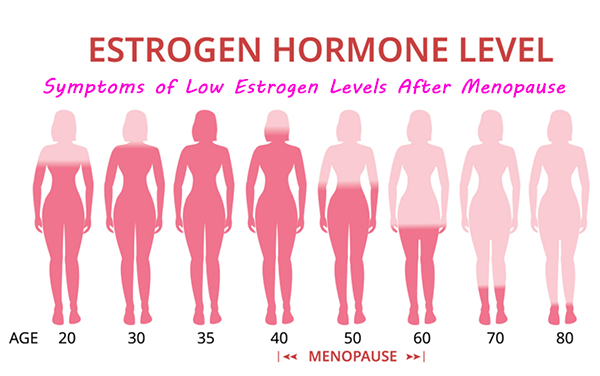Menopause Estrogen Blood Pressure
Menopause Estrogen Blood Pressure – A blog about the Impact of Estrogen on Blood Pressure and Menopause by CSB Aleena Aspley of North Brisbane Australia.
.
.
MENOPAUSE, BLOOD PRESSURE AND ESTROGEN LOSS
Menopause is a natural phase in a woman’s life, signaling the end of her reproductive years. During this transformative time, usually occurring between the ages of 45 and 55, (although it can begin earlier or later) a woman’s ovaries gradually produce less estrogen and progesterone, leading to the cessation of menstrual periods. The hormonal changes, particularly the decline of estrogen levels, can have significant effects on a woman’s health.
One area influenced by these hormonal shifts is blood pressure. Today I am writing about the connection between estrogen, blood pressure regulation, and the impact of menopause on cardiovascular health.
.
Menopause Estrogen Blood Pressure
THE ROLD OF ESTROGEN IN BLOOD PRESSURE REGULATION
As women reach the age of 45 and beyond, they face an increased susceptibility to developing high blood pressure. This condition is directly associated with the decline in estrogen levels during perimenopause.
Estrogen, the primary female sex hormone, plays a multifaceted role in women’s bodies. Beyond its fundamental role in the reproductive system, estrogen influences various physiological functions, including blood pressure regulation.
Estrogen exerts a vasodilative effect, helping to keep blood vessels open and enhancing blood flow throughout the body. As a result, this hormone helps maintain healthy blood pressure levels and promotes cardiovascular health.
.
.
IMPACT OF ESTROGEN ON CARDIOVASCULAR HEALTH
The fluctuating and declining estrogen levels during menopause can influence a woman’s risk of developing hypertension and other cardiovascular issues. Hypertension, or high blood pressure, is a leading risk factor for heart disease, stroke, and other heart-related complications.
Research has indicated that postmenopausal women have a higher prevalence of hypertension compared to their premenopausal counterparts. This further underscores the importance of estrogen’s vasodilative effect in maintaining healthy blood pressure.
.
.
MANAGING BLOOD PRESSURE DURING MENOPAUSE
As women navigate the journey of menopause, it becomes essential to be proactive in managing blood pressure and overall cardiovascular health. Adopting a healthy lifestyle can make a significant difference in this regard. Here are some tips to consider:
- Balanced Diet: Prioritize a heart-healthy diet rich in fruits, vegetables, whole grains, lean proteins, and healthy fats.
- Regular Exercise: Engage in regular physical activity to support cardiovascular health. Activities like walking, swimming, or cycling can be gentle on the body yet highly beneficial.
- Stress Management: Practice stress-reducing activities like yoga, meditation, or deep breathing exercises to help lower blood pressure.
- Routine Check-ups: Schedule regular check-ups with your healthcare provider to monitor blood pressure and overall health. Early detection of any issues allows for timely intervention.
- Hormone Replacement Therapy (HRT): For some women, HRT may be recommended to help regulate hormone levels and potentially alleviate menopausal symptoms, including blood pressure fluctuations.
- Hormone Replacement Bio-Identical Hormones: A natural alternative to HRT is bio-identical hormones. Bio-identical hormones are molecularly identical to the hormones naturally produced in the human body and are are available in various forms, including creams, gels, patches, pills, and pellets. These hormones are typically derived from plant sources, are tailored to suit an individual’s specific hormonal needs and are designed to match the exact chemical structure of the hormones produced by the endocrine system. Click Here for more information on Bio-idential Hormones.
.
Menopause Estrogen Blood Pressure
ESTROGEN LOSS
Estrogen plays a vital role in promoting healthy blood flow by keeping blood vessels open. However, as estrogen levels decrease, blood vessels may constrict, leading to narrowed veins and arteries. Consequently, the heart has to work harder to pump blood, resulting in elevated blood pressure.
Elevating estrogen levels not only reduces the risk of hypertension but also provides numerous other advantages associated with balanced estrogen levels, such as improved sleep quality and enhanced weight loss.
.
.
HORMONE IMBALANCES
Hormone imbalances are quite common, particularly before menopause, and even subtle fluctuations in hormone production can lead to imbalances. When hormonal balance is disrupted, it can lead to changes in blood pressure and potentially contribute to the development of hypertension or high blood pressure. These small changes in hormone levels can significantly impact a woman’s health.
.
.
ESTROGEN: THE MULTIFACETED HORMONE FOR WOMEN’S HEALTH
Estrogen plays a pivotal role in women’s bodies as a primary sex hormone, regulating the reproductive system. However, its significance extends beyond reproductive functions. Normal levels of estrogen contribute to a wide range of essential functions, including:
- Controlling Cholesterol Levels: Estrogen helps in maintaining healthy cholesterol levels, supporting cardiovascular health.
- Maintaining Bone Density: Estrogen is crucial for preserving bone density, reducing the risk of conditions like osteoporosis.
- Boosting Mood: Adequate estrogen levels can positively impact mood and emotional well-being.
- Reducing Blood Vessel Inflammation: Estrogen helps in reducing inflammation in blood vessels, promoting heart health.
- Protecting the Urinary Tract: Estrogen plays a role in maintaining the health of the urinary tract.
- Sustaining Cognitive Function: Estrogen is believed to support cognitive function and brain health.
- Preserving Youthful Skin and Hair: Estrogen helps in maintaining the health and appearance of skin and hair.
Conversely, low levels of estrogen can lead to various health issues, including osteoporosis, mood swings, and hot flashes.
.
.
THE VASODILATIVE EFFECT OF ESTROGEN: IMPORTANCE FOR CARDIOVASCULAR HEALTH
Estrogen plays a significant role in women’s cardiovascular health, exerting a vasodilative effect that helps keep blood vessels open. This effect is particularly crucial for maintaining healthy blood pressure and overall heart health. Studies reveal that heart disease complications are the leading cause of death in women, underscoring the importance of a balanced hormonal state for cardiovascular well-being.
As women reach the age of 65 or 70, more of them develop high blood pressure compared to men. However, some women may not be aware of the potential rise in blood pressure due to the decrease in estrogen production as they age. The consequences of hypertension can be severe and may include:
- Heart Attack and Stroke: Narrowed or blocked arteries can lead to blood clots that may cause heart attacks or strokes. Studies show that a woman’s risk of having a heart attack is five times higher after menopause than before.
- Heart Failure: High blood pressure forces the heart to work harder, potentially leading to heart enlargement and reduced blood supply to organs.
- Hypertensive Crisis: A medical emergency where blood pressure rapidly rises above 180/120.
- Chest Pain (Angina): Inadequate blood flow to the heart can cause pressure or pain in the chest, especially during physical exertion.
- Kidney Damage: High blood pressure can damage the kidneys, impairing their functions and potentially leading to kidney failure.
- Vision Problems: Elevated blood pressure can strain the small blood vessels in the eyes, leading to vision issues and even permanent vision loss if left untreated.
By monitoring blood pressure and taking proactive steps to manage it, women can reduce their risk of hypertension and maintain a healthy heart. Staying informed about the changes that occur during menopause and maintaining overall health awareness are vital for promoting cardiovascular well-being and quality of life
.
.
LIFESTYLE TIPS FOR MAINTAINING HEALTHY BLOOD PRESSURE DURING MENOPAUSE
Maintaining healthy blood pressure is vital for women, particularly as estrogen levels decline during menopause. Taking high blood pressure seriously is crucial, and lifestyle changes can play a significant role in managing this condition and reducing the risk of potential health complications. Here are some helpful tips to consider:
- Balanced Diet: Emphasize a well-balanced diet that is low in sodium and rich in potassium. Incorporate plenty of fruits, vegetables, whole grains, and lean proteins to support heart health.
- Regular Exercise: Engage in regular, low-impact exercises like walking, swimming, or cycling. Physical activity helps improve cardiovascular health and can contribute to better blood pressure management.
- Stress Reduction: Practice stress-relieving activities like yoga or meditation to manage stress levels. Lowering stress can positively impact blood pressure and overall well-being.
- Regular Check-ups: Schedule regular check-ups with your healthcare provider to monitor your blood pressure and overall health. Regular assessments can help detect any changes or potential issues early on.
- Medication Adherence: If prescribed medication to manage blood pressure, take it as directed by your healthcare provider. Consistent medication adherence is crucial for effective blood pressure control.
- Hormone Therapy: For some women, hormone therapy may be recommended to help regulate estrogen levels and potentially improve blood pressure control.
.

.
HORMONES AND CARDIOVASCULAR HEALTH
The impact of estrogen on blood pressure during menopause highlights the intricate interplay between hormones and cardiovascular health. As estrogen levels decline, it becomes essential for women to be proactive in managing blood pressure through lifestyle changes, regular check-ups, and, if appropriate, hormone replacement therapy.
By prioritizing heart health and maintaining a balanced lifestyle, women can navigate the menopausal journey with a greater sense of well-being and reduced cardiovascular risks.
.
Menopause Estrogen Blood Pressure
DISCLAIMER: The information provided on My Yoni Whisperer Bodywork website is for general informational purposes only and should not be considered medical advice or a substitute for professional medical expertise. The content provided is not intended to diagnose, treat, cure, or prevent any disease or medical condition.
Always consult with a healthcare professional for personalized guidance and support during this significant Menopause life transition.
.
.
.
.
TEN AWESOME VAGINAL ORGASMS – Her Orgasmic Potential is Unlimited!
.
YONI MAPPING MASSAGE — #1 Awakening, Breath, Presence & Grounding
.
.
.
IS FEMALE EJACULATION A REAL PHENOMENON — Amrita Unraveling the Debate?
.
.
MY CONTACT DETAILS
Ms. Aleena Aspley
Certified Sexological Bodyworker / Somatic Sex Educator
NEO Tantra & Chakrassage Professional
CREATRESS OF YONI WHISPERER BODYWORK
.
.
My Studio is located in North Brisbane
Mobile: 0404 449 433
International: +61 404 449 433
By Appointment: Monday to Friday 9am to 9pm
Please TEXT me to book your appointment
I work occassional weekends – just ask
My Bodywork Directory – www.AleenaAspley.com.au
.
.
Menopause Estrogen Blood Pressure




Pingback: Female Libido Sexual Health - Hormones, Childbirth & MenopauseYONI WHISPERER BODYWORK